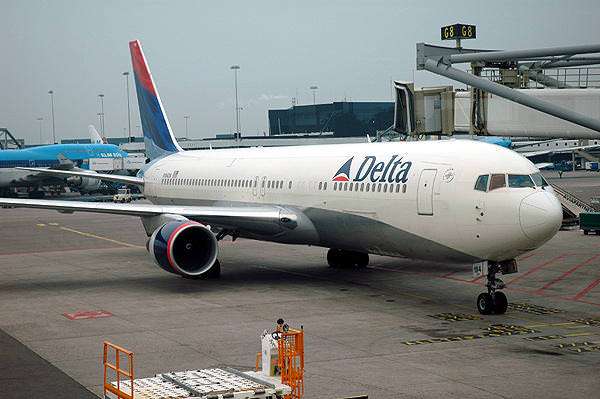Obamacare Will Cost Delta Airlines $100 Million Next Year

Yesterday, I noted ways that some employers are already limiting health benefits for workers because of Obamacare. Today, we have another example: Delta airlines says that the health law will cost the company $38 million directly, and nearly $100 million when all the additional costs are factored in.
In a letter signed by Robert Knight, Delta's Senior Vice President for Government Affairs, the company says that the company will absorb some of those costs, but will also end up sharing some of them with employees. Ultimately, Knight writes, Obamacare "will result in increasing costs, for both companies and our employees, and will also reduce the benefits provided."
The bulk of the letter, first posted by Erick Erickson at Redstate, details the specific provisions that Delta expects to add to the company's costs. Those include:
- A reinsurance fee of $63 per covered individual, which makes family coverage more expensive and which the company estimates will cost about $10 million next year.
- Coverage for dependents up to age 26, which results in a "permanent increase in costs of about $14 million a year."
- The individual mandate, which Delta expects will result in some employees who currently turn down employer coverage deciding to take it rather than pay a penalty—which will cost the airline an additional $14 million.
But Delta can afford it, can't they? The company's profits were up 18 percent in 2012, when it netted about $1 billion on $36.7 billion in revenue. Compared to that, $100 million is just a drop in the bucket, right?
That's one way to look at it. Here's another: Delta is, at least for the moment, better positioned to handle these sorts of costs than many, perhaps even most companies. It's a huge corporation with billions in revenue, and the $100 million cost represents a relatively small part of its net revenue.
And it's still planning to reduce benefits for workers.
So consider how all the smaller companies that don't have Delta's cash cushion or reasonably strong annual margins are likely to react. And think about what might happen a few years down the road if Delta's profits—which were losses just a few years ago—don't hold up. The costs imposed by Obamacare won't just be shrugged off, or eaten as part of the normal cost of doing business. They won't go unnoticed by execs, or unfelt by workers. They will have an impact, somehow, on employers and their employees, on the benefits they provide, and the coverage they receive.
